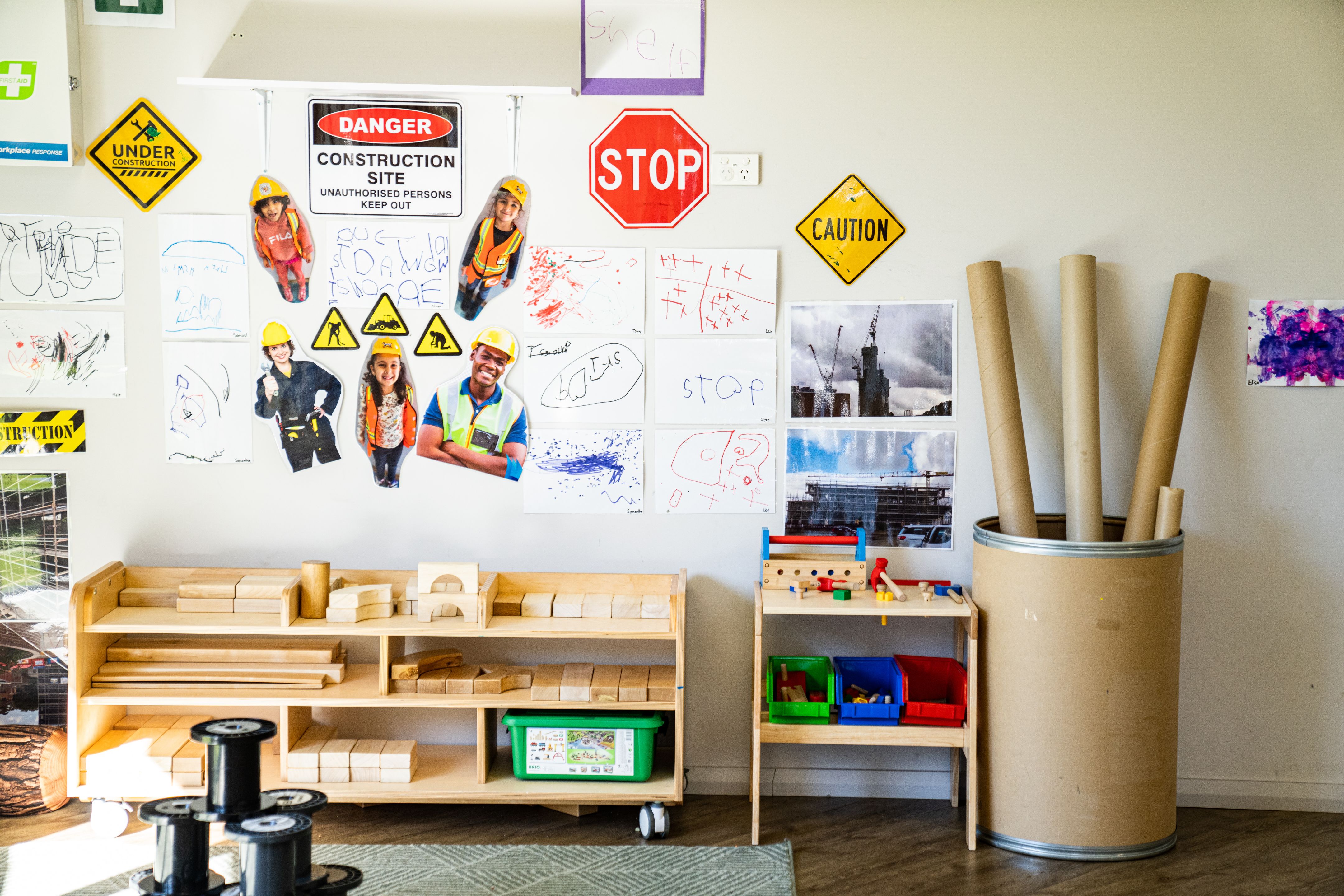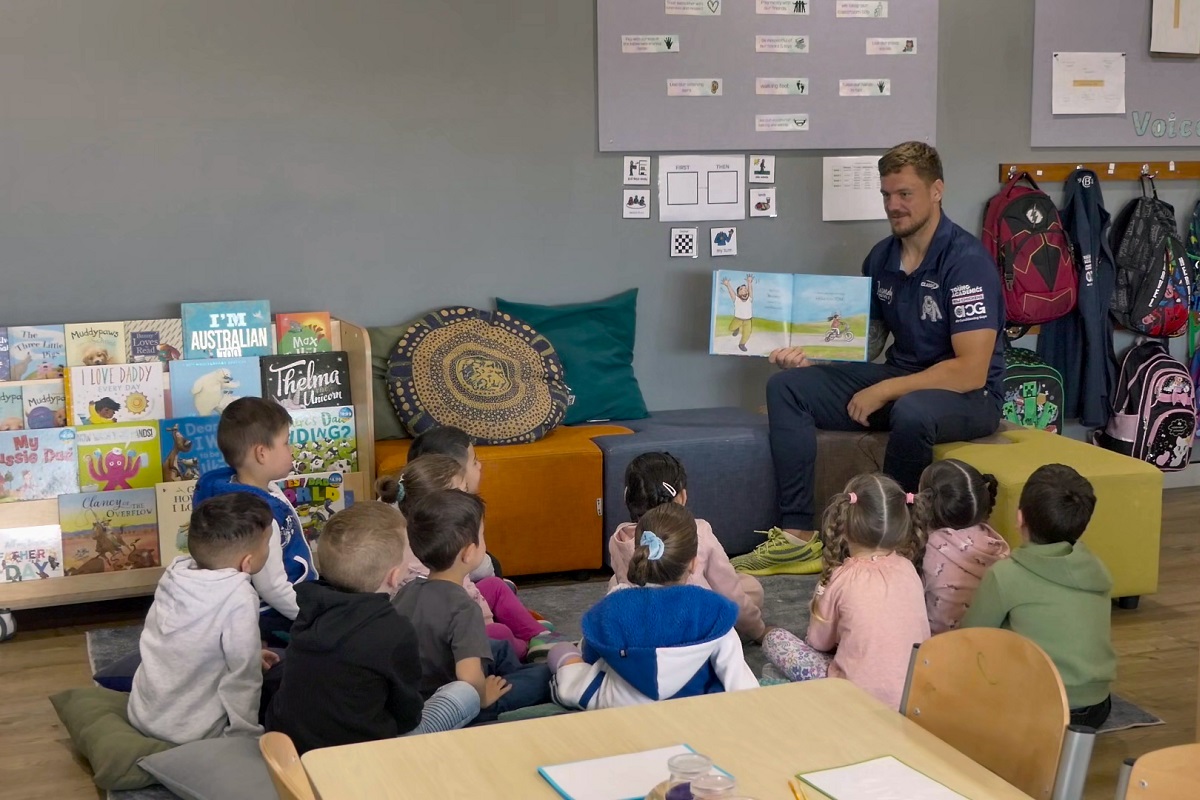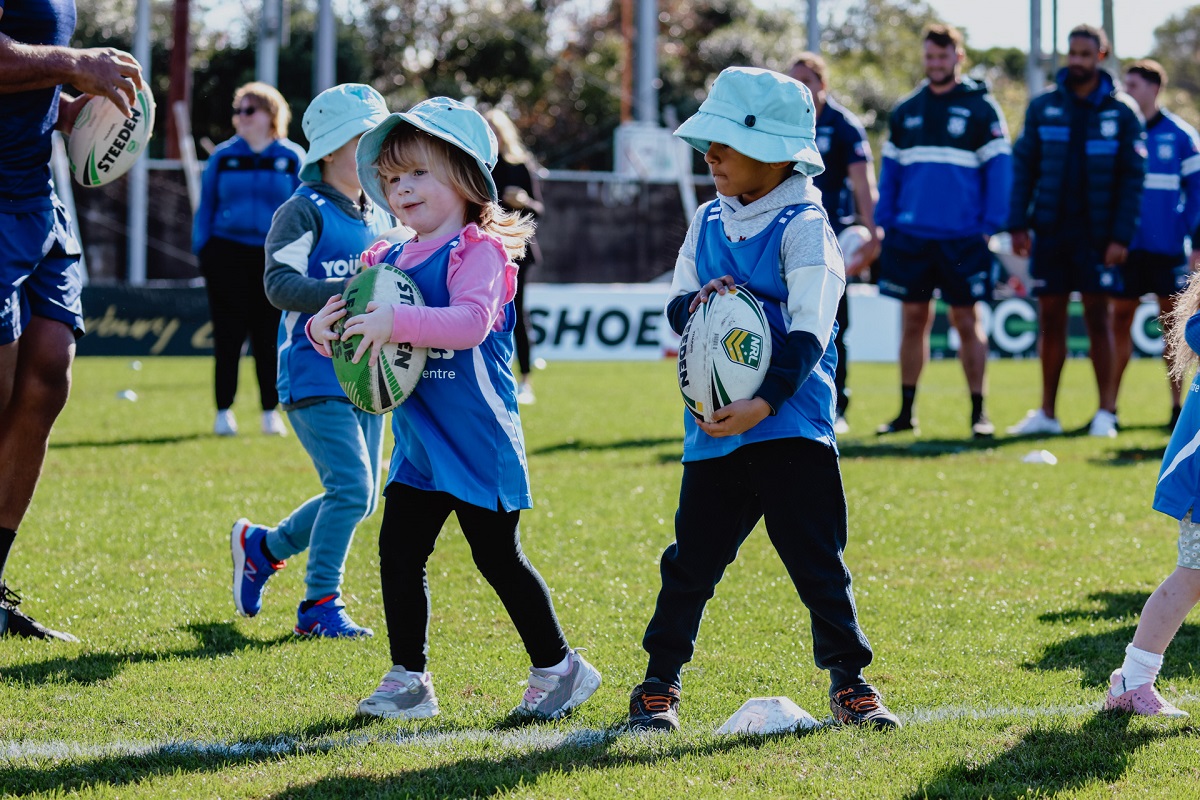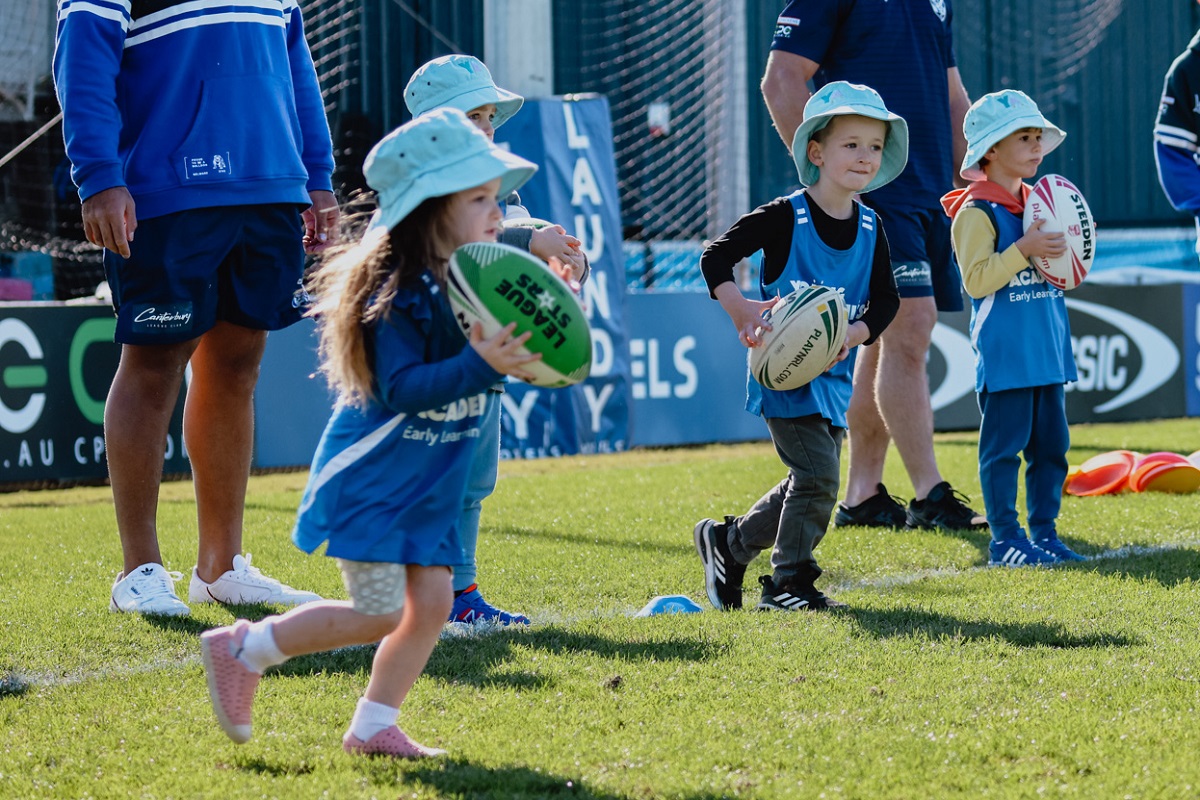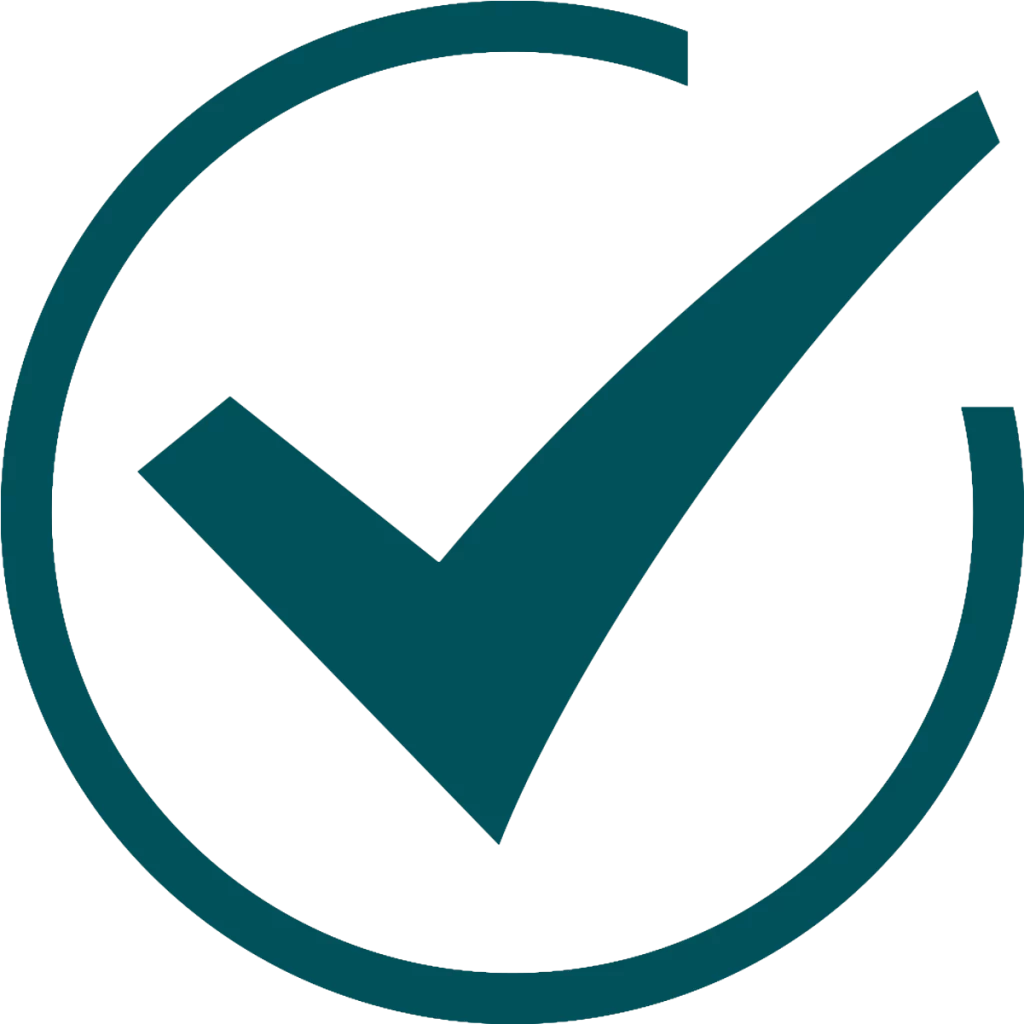At Young Academics, we want every child at our centres to have the best chance at a bright future. Our preschool program is designed for children aged 3—5 years, helping them to prepare for formal school learning after they leave our centre. In addition to hiring qualified and committed educators, our centres implement our Transition to School Program which targets 7 key areas for the holistic development of preschoolers.
The aim of our Transition to School Program is to support the holistic development of 3, 4 and 5 years old. When children graduate from our Young Academics centres, they enter the next stage of their lives with a well-rounded education, not only in the areas of early literacy and numeracy, but also social skills, self-help skills, and independence.
To help ensure a smooth transition to school after leaving Young Academics, we have designed a tailored Program to target 7 key areas that will best prepare your child.
7 key areas we focus on across our Sydney preschools
- Core
Through reading, writing, drawing, listening, and conversing, our educators teach children about important concepts needed to understand the world around them. We promote critical thinking – an important learning disposition– through intentional teaching strategies & project work. Projects are interest based which promotes active participation from the children.
| Examples | |
| Method | Result |
| Conversing with educators and peers | Expansive vocabulary, social skills, conflict resolution and working collaboratively with others |
| Storytelling, rhymes and dramatic play | Learning to think creatively, express, ideas, and develop confidence |
| Encouraging the usage of words to express their wants and needs | Developing independence and confidence. |
- Scholar/Academics
The differences between childcare and school can be significant, particularly when it comes to the formal structure of learning. Having a foundational understanding of literacy and numeracy, supports a positive transition to formal structure learning. Through a variety of experiences and activities, we ensure that children develop the necessary early literacy and numeracy skills through our program.
| Examples | |
| Method | Result |
| Conversing with educators and peers | Improved literacy |
| Exploring mathematical concepts and processes, such as counting and measurement. | Developed numeracy skills |
- Health and wellness
Supporting positive health & wellbeing habits from an early age contributes to life-long wellness. In this section of our program, we promote the development of children’s gross motor skills and responsibility for health and hygiene. From an early age children are old enough to be responsible for some aspects of their personal hygiene, such as applying sunscreen, and blowing their nose.
| Examples | |
| Method | Result |
| Our Kitchen Garden Program teaches the nutrition of food as well as where food comes from | Long-lasting healthy eating habits |
| Group games that allow for hopping, climbing, running and more | Development of fundamental movement skills |
- Discovery
Exploration and discovery are integral parts of every child’s development. The preschool age is very inquisitive, and nurturing this, won’t only increase their understanding of the world, but will help them when they attend school. At our childcare centres, we encourage curiosity, investigation and experimentation in a number of ways.
| Examples | |
| Method | Result |
| Scientific experiments and inquiry/investigation projects | Love for exploration and discovery |
| Promotion of active participation in the local community. | Enriched community understanding & collaborative partnerships |
- Creativity
Expression is a key part of any child’s development. Creative expression helps them to become confident, discover who they are, communicate their interests, improve their language and express their emotions.
| Examples | |
| Method | Result |
| Imaginative play and imagine-build-play concepts | Strong imagination, confidence, explore aspects of identity. |
| Sculpting, sketching and other art activities | Developed creative expression, ability to express ideas |
- Our World
When your child enters ‘big school’, they will become involved in their local and global communities in a variety of ways. To prepare for this, we ensure our preschoolers are active participants in our programs. This informs them about the community and prepares them for getting involved on a larger scale.
| Examples | |
| Method | Result |
| Teaching how to reduce, reuse, recycle and its importance | Understanding of sustainability |
| Celebrating Culture & Diversity | Respect for diversity and cultural competence |
| Excursions within the local community | Comprehension of the importance of active citizenship |
| Observation of simple life cycles | A better understanding of ecosystems |
- Wellbeing
Children should have positive interactions to develop a strong sense of identity and independence. Our dedicated educators strive to develop these relationships through a series of positive interactions between children and their educators, peers, families and the environment. A major part of forming these positive interactions is through the development of friendships which we facilitate through providing endless opportunities for cooperative play.
| Examples | |
| Method | Result |
| Helping children to recognise and understand emotions | Stronger ability to self-regulate |
| Encouraging children to participate in cooperative play | Social Skills |
We hope that this article provided insight into how our educators work to nurture your child’s mind and to prepare them for life after Young Academics. If you have any questions for our team, contact us and our team will be happy to assist.



 BACK
BACK